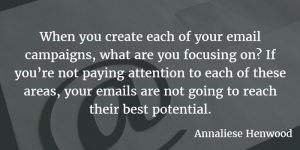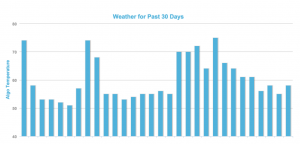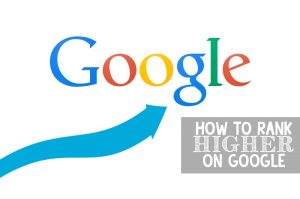Marketers continue to miss out on an enormous opportunity for growth. Many buy into content strategy and inbound marketing, but they’re often overlooking how significant SEO is to their overall success. All too often left to a developer or marketing function that claims to ‘get it’; it’s an area requiring a deep understanding and specialized knowledge to offer insight and direction for optimal results.
When you run the numbers, it becomes clear that it’s probably your biggest channel for acquisition.
While social media provides a distribution channel for content strategy, a lot of companies either take a passive approach to SEO, or they don’t utilize search to it’s full potential, if at all. Often because it isn’t properly understood, or past experiences leaving them jaded. This is not an excuse, and an oversight really. If you had a bad experience with getting your car fixed, would you right off all mechanics?
Breaking It Down
There are 2 aspects to search engine optimization, and broken down they are on-page and off-page optimization. While many will focus on the on-page aspect, the reality of this is that it is a small part of SEO in terms of its effectiveness. Don’t misunderstand that it isn’t important. But off-page optimization is what has the most influence over organic results.
If you had to generalize, the on-page component probably makes up less than 20% of what SEO can do for you. All the tweaking of title and Meta tags only takes you so far. In the case of large sites such as e-commerce or other websites that tend to have hundreds of thousands of pages, the overall percentage of on-page optimization can be double in its effectiveness as there are more ‘long tail’ opportunities to work with. By this, I’m referring to longer and more specific search queries that might be 5 or more words, such as brand plus model plus color or another attribute.
There are instances where a website’s authority is strong enough that they will rank at times just for publishing, but this also depends on the competitiveness of the term or phrase as well. There are a select few per vertical or market that usually have this authority.
Scale for Success
For many companies, paid search is the go to for driving traffic, but it’s limiting in a few ways. Scaling isn’t always an option due to budgetary concerns to drive more prospects, and the fact that it only gets about 10% of the clicks for the search volume. Also, the position of your add determines just how much of that measly 10 percent you might capture. Paid search can vary for market share depending on the term or vertical, and with local search, the 3-pack of results clearly has influence. Make no mistake, paid search is great, and easy to follow and measure. It’s likely for these reasons that businesses lean towards it.
So you might be wondering about the off-page aspect at this point. This is related to link building, and you would either focus on this through inbound marketing, or direct interaction in a PR approach or thought leadership way to placing links on other websites. In the end, SEO is about the links, and all are not of equal value. Earn them or place them, but that’s a different discussion.
While this might not provide any real incentive to change your thinking just yet, consider the following and how it can impact your bottom line. Organic search traffic tends to provide the highest volume, and conversion. There’s an argument to be made for paid search, but it doesn’t scale as well for most. But with either, the conversion tends to be higher than other digital marketing channels because unlike most forms of advertising, you’re not interrupting the consumer. Additionally, focus on organic results and SEO builds equity for your brand. With paid search, if a campaign ends, so do the leads, while organic traffic keeps coming.
Run the Numbers
If you were targeting a phrase that received ten thousands monthly searches, being in position one in the organic results might bring you 40% of that traffic. There are conflicting studies about what the top spot provides, and vary from about 30-40% on average, with the following positions (2, 3, 4, 5) providing about 12, 9, 6, and 5 percent of the search volume respectively. Using the same ration, and keeping in mind that paid search might get 10% on average, then the top spot might enjoy a measly 4% of those ten thousand queries per month.
It’s easy to see how marketers lean to paid search. They can start a campaign quickly and easily, and monitor their spend while refining their conversion, all to define a cost per lead or sale. But not developing your SEO or organic results is clearly a missed opportunity.
Investing in Growth
Building an SEO campaign can be a leap of faith for some, as it can take months to see a return. But it’s an investment, and unlike paid search, it continues to deliver for some time when the campaign stops. Although results vary, and this really depends on the current situation of a website, it’s link profile, and how established it might be.
The perfect storm for digital marketers is using paid search for immediate results, while building an SEO campaign for future success. Your organic search campaign will offset your paid search in time and it becomes a matter of shifting your budget when it starts to work for you. Running both supplement one another as well.
In some ways, investing in SEO is like investing in your brand. Should you appear in top results, your brand would be synonymous with the term and help with positioning. This also helps with top of mind awareness, and consumers tend to associate you with certain terms when you appear at the top of the results.
Most players in lucrative markets that can be monetized, such as finance, travel, insurance, and most forms of e-commerce, are already involved in SEO and see the value. If your business isn’t, you’re leaving money on the table and missing out on big opportunities to grow online. In the end, aren’t most online verticals monetized one way or another? Most online businesses or presences either have a product, or can use the leads to drive a service offering.
Having worked within a large variety of markets, organic search is usually the main channel for leads, traffic, and online growth. If you aren’t already focused on improving your organic results, it’s inevitable that it will be a concern, and some of your competitors will have been developing authority and leaving you to catch up.
Is it time to rethink your digital strategy?
If you’re online, why wouldn’t you use a channel with the most potential to grow your business?
Digital & Social Articles on Business 2 Community(47)






